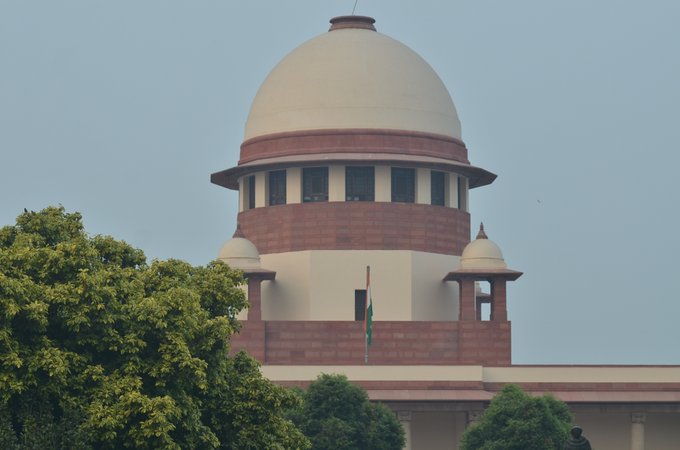Sakunjay Vyas
Published on: March 22, 2022 at 10:47 IST
The two-judge bench of Justice Hemant Gupta and Justice V. Ramasubramanian of Supreme Court overturned the decision passed by the Division Bench of the High Court of Jharkhand at Ranchi that dismissed the order of the learned Single Bench allowing the Writ Petition regarding the acceptance of a tender.
The Supreme Court recently ruled that multiple layers of exercise of jurisdiction delay the final adjudication.
The two-judge bench of Justice Hemant Gupta and Justice V. Ramasubramanian heard an appeal against the Division Bench of the High Court of Jharkhand at Ranchi order that had dismissed the order of the learned Single Bench allowing the Writ Petition regarding the acceptance of a tender, where due to non-responsiveness of the application of tender, tender of the one was accepted and others were rejected.
The Apex Court was of the opinion that the infrastructure projects related to the State should not stay since it affects both the State and its citizens negatively. That the High Court would have been advised to hold the stay in infrastructure-related cases. The Apex Court further stated that any contract of public service should not be interfered with lightly, and in any case, there should not be any interim order derailing the entire process of the services meant for the larger public good.
“Since the construction of road is an infrastructure project and keeping in view the intent of the legislature that infrastructure projects should not be stayed, the High Court would have been well advised to hold its hand to stay the construction of the infrastructure project.…” the Court said.
The Apex Court stated that the Writ Court should not be imposing its decision on the employer as to what to do and which applicant to select.
Since the Court lacks the expertise required in examining the terms and conditions of the present-day economic activities of the State and contracts involving technical issues, hence the Court should be more reluctant and should focus on whether or not the decision-making process is being complied according to the standard established and without any prejudice. And that the satisfaction whether a bidder satisfies the tender condition is primarily upon the authority inviting the bids.
“…the Writ Court should refrain itself from imposing its decision over the decision of the employer as to whether or not to accept the bid of a tenderer…the approach of the Court should be not to find fault with magnifying glass in its hands, rather the Court should examine as to whether the decision-making process is after complying with the procedure contemplated by the tender conditions. …” the Court said.
The Apex Court further stated that the multiple layers delay the final adjudication in matters related to the challenging of the grant of tender. Therefore it is open for the High Courts or the Hon’ble Chief Justice to move these petitions directly to the Division bench, there-by reducing at-least hearing by one of the forums.
“We also find that multiple layers of exercise of jurisdiction also delay the final adjudication challenging the grant of tender. Therefore, it would be open to the High Courts or the Hon’ble Chief Justice to entrust these petitions to a Division Bench of the High Court, which would avoid at least hearing by one of the forums.” the Court said.
As a result, the Apex Court overturned decision passed by the Division Bench of the High Court of Jharkhand at Ranchi, stating that the decision of the subordinate Court of unnecessary interference in the technicality of the contract of public service has only caused loss to the State with no corresponding gain to anyone.

